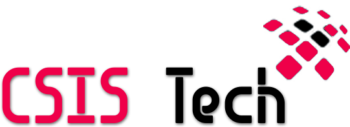What Distinguishes An IoT Cloud Platform From Conventional Cloud Infrastructure?

In the digital age, IoT solutions have become increasingly popular in various industries, such as healthcare, manufacturing, and transportation. IoT platforms manage and monitor IoT devices and sensors, distinct from conventional cloud infrastructure.
According to a recent report by MarketsandMarkets,
“The global market for IoT platforms is expected to experience significant growth from $1.1 billion in 2020 to $6.2 billion by 2025, with a compound annual growth rate (CAGR) of 34.0%”
This blog will explore what sets IoT platforms apart and what benefits they offer to organizations seeking to implement IoT solutions.
What are IoT Platforms?
IoT platforms are cloud-based software systems that manage and operate IoT devices and sensors. These platforms provide the necessary infrastructure to collect, store, and analyze data from IoT devices. IoT platforms are also designed to be scalable and flexible, allowing organizations to adapt quickly to changing business needs.
IoT Platforms vs. Conventional Cloud Infrastructure
Conventional cloud infrastructure refers to the typical cloud-based data centers that organizations use to store and manage data. These data centers are designed to be scalable and flexible, just like IoT platforms. However, IoT platforms are specifically designed to support the unique needs of IoT devices.
here are some key points of comparison between IoT platforms and conventional cloud infrastructure:
IoT Platforms:
Designed to support the unique needs of IoT devices
Provide a centralized dashboard for managing multiple devices and sensors
Offer APIs and gateways to connect and communicate with devices
Can handle large volumes of real-time data generated by IoT devices
Provide advanced analytics and machine learning capabilities
Have built-in security features such as encryption, access control, and device authentication
Conventional Cloud Infrastructure:
Designed for general data storage and management
Requires individual management of each device or sensor
May not have the necessary tools to connect and communicate with IoT devices
May not be able to handle large volumes of real-time data generated by IoT devices
Offers basic analytics capabilities
It may not have the same level of security features as IoT platforms
Overall, IoT platforms offer a more comprehensive solution designed to meet the unique needs of IoT devices. While conventional cloud infrastructure can provide basic data storage and management, it may not have the tools or capabilities to effectively manage and analyze the vast amounts of real-time data generated by IoT devices.
Advantages of IoT Platforms
Scalability:
IoT platforms are designed to support many devices and sensors, making it easier for organizations to scale their IoT solutions as their needs grow.
Security:
IoT platforms provide robust security features to protect sensitive data, such as device authentication and secure data transfer protocols.
Interoperability:
IoT platforms are designed to be interoperable with various devices and sensors, making connecting and communicating with different IoT devices easier.
Customization:
IoT platforms allow organizations to customize their IoT solutions to meet their specific business needs. Organizations can choose from various pre-built IoT applications or create their custom applications.
Use Cases of IoT Platforms
Smart Home Solutions:
IoT platforms are commonly used in smart home solutions to control and automate various home devices such as lighting, temperature, and security.
Industrial IoT Solutions:
IoT platforms are also used in industrial IoT solutions to monitor and optimize manufacturing processes, improve supply chain management, and enhance worker safety.
Healthcare IoT Solutions:
IoT platforms can be used in healthcare IoT solutions to monitor patient health and provide remote care, enabling healthcare providers to offer more personalized and efficient care.
Challenges of IoT Platforms
Integration Complexity:
Integrating IoT devices and sensors with an IoT platform can require specialized skills and knowledge.
Data Privacy and Security Concerns:
With the proliferation of IoT devices and sensors, there are increasing concerns about data privacy and security. IoT platforms must be designed with strong security features to prevent unauthorized access and data breaches. Prioritizing robust IoT security measures becomes paramount to safeguard sensitive data and mitigate potential risks.
Conclusion
IoT platforms offer unique advantages over conventional cloud infrastructure in managing and operating IoT devices and sensors. With the ability to scale, provide security, and support interoperability, IoT platforms are a critical component of IoT solutions. However, organizations should also be aware of the integration complexity and data privacy and security concerns associated with IoT platforms. Organizations can create an efficient and secure IoT ecosystem that meets their unique business needs by selecting and implementing the right IoT platform.
As the IoT market evolves, organizations must choose an IoT platform that aligns with their specific business needs and provides the necessary infrastructure to manage and operate their IoT solutions. By doing so, organizations can leverage the power of IoT to improve efficiency, optimize processes, and enhance customer experiences.












